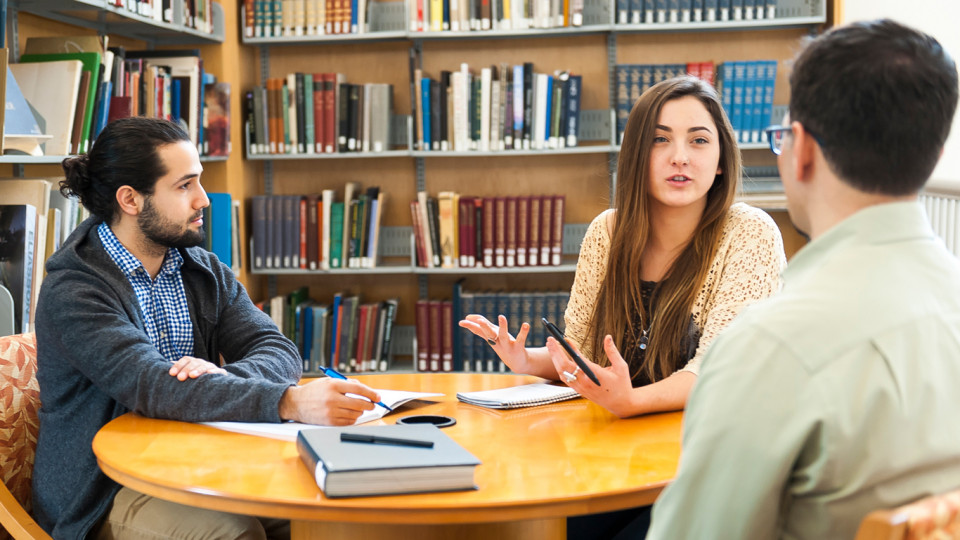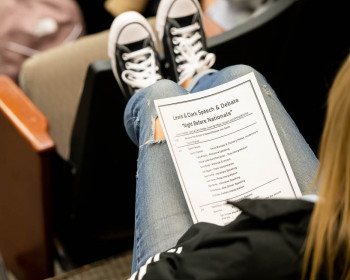For Current Students

What do we do in Rhetoric and Media Studies? Many specific things, of course, but our basic goal is to provide students with effective tools—theoretical, methodological, and creative—for understanding how speeches, images, texts, stories, conversations, and symbols work.
Within that general framework, here are some of the exciting questions our courses examine:
- How is meaning made in film and television texts?
- What effects can we expect from strategies and tactics in political campaigns?
- How can arguments between Plato and Aristotle help us understand contemporary public rhetoric?
- How are identities, relationships, and communities affected by social media?
- How do audiences respond to film-making techniques?
- How can a powerful speech change history?
And that’s not all. You can make narrative short films, short documentaries, videographic essays, and a variety of other media in our classes. You can also study the stories we tell each other about personal health, how historical figures and events come to be represented in public memory, and how sound and image in motion pictures can frame reality. And you can study how these processes and issues interact with gender, race, and culture.
Not only that, but you can receive academic credit for supervised internships related to the department—in advertising, film production, newspapers or magazines, nonprofit advocacy, and so on. Our students conduct their own original research and creative work and collaborate with faculty on films, books, and scholarly articles.
So that’s a sampler of the RHMS toolkit. Interested in more details? Check out our course catalog!
Rhetoric and Media Studies News
Rhetoric and Media Studies is located in John R. Howard Hall on the Undergraduate Campus.
MSC: 35
email sasberry@lclark.edu
voice 503-768-7616
fax 503-768-7620
Chair Kundai Chirindo
Rhetoric and Media Studies
Lewis & Clark
615 S. Palatine Hill Road MSC 35
Portland OR 97219
